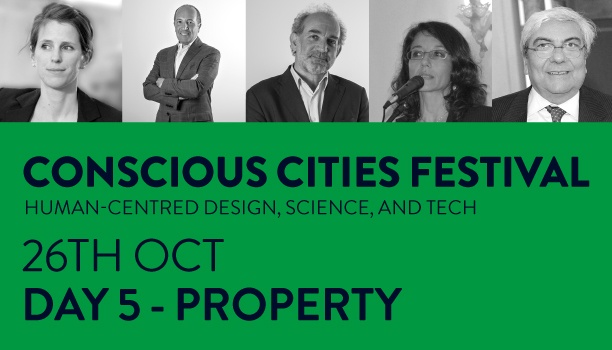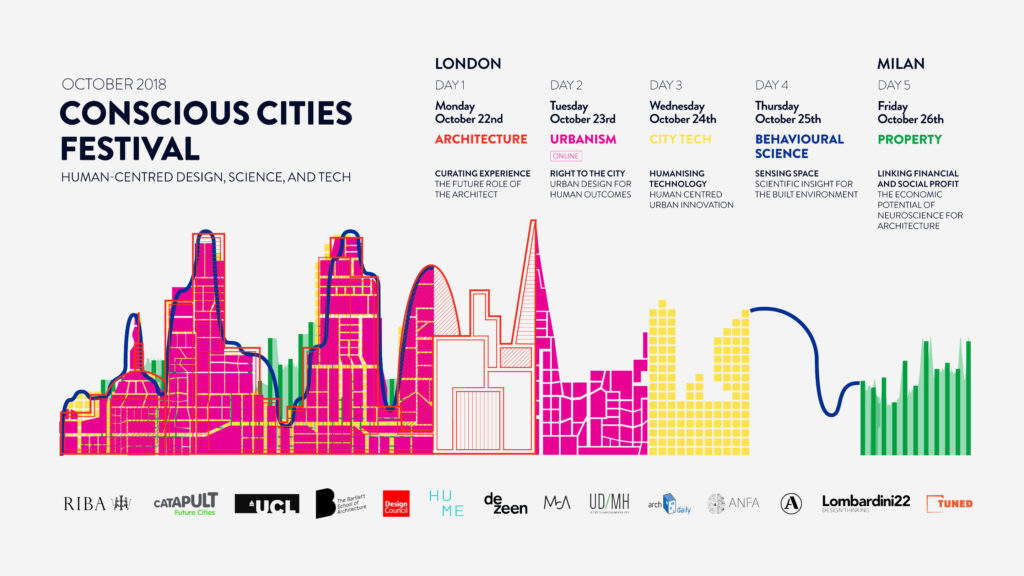It is clear that the initiative to improve people’s wellbeing through better designed environments is universally supported. However, the economic promise of human centred design is less understood, creating a growing gap between the demand for better performing environments and their supply by the building industry.
There are now an expanding number of built examples and fiscal arguments that point to the potential of science informed architecture and urban design. Developers and clients are able to improve the performance of their property, future-proofing their assets by ensuring long-term competitiveness. Placing human outputs first produces a win-win for both the property user and owner, from offices designed to improve productivity to schools that enhance learning. Neuroscience can drive architecture towards a better user experience and a positive impact on wellbeing, also preventing the high costs of poor physical and mental health.
This Conscious Cities event co-hosted by Lombardini22 will gather thought leaders in architecture, neuroscience, and property to present and debate the potential of a science-informed building industry.














